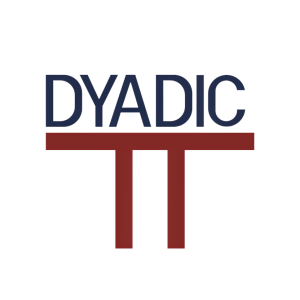Dyadic Announces Publication of C1 Monoclonal Antibody in Nonhuman Primate Study in Nature Communications
- The first trial using a C1 produced monoclonal antibody provides equivalent protection against SARS-CoV-2 in hamster and nonhuman primate models compared to monoclonal antibody produced in CHO.
JUPITER, Fla., March 26, 2024 (GLOBE NEWSWIRE) -- Dyadic International, Inc. (“Dyadic” or the “Company”) (NASDAQ: DYAI), a global biotechnology company focused on building innovative microbial protein production platforms today announced the online publication of the manuscript "Filamentous fungus-produced human monoclonal antibody provides protection against SARS-CoV-2 in hamster and nonhuman primate models" in Nature Communications (“Springer-Nature"), an international journal publishing peer-reviewed research in all fields of science and technology.
“These results demonstrate that the C1-expression system is promising as a technology platform for human monoclonal antibody (HuMab) development and production for preventive and therapeutic medicines,” said Prof. Albert Osterhaus of Hannover University of Veterinary Medicine, Germany and of CR2O, a Dutch CRO. "The study characterized the in vitro activity of a monoclonal antibody (mAb) produced by C1 cells (designated "HuMab 87G7") and demonstrated its protective efficacy for both prophylactic and therapeutic applications in hamsters and non-human primates without causing antibody-mediated enhanced virus replication. Those are significant findings, in the sense that the demonstration of HuMab 87G7 in animal models against SARS-CoV-2 provided protection, especially with the raising concerns related to emerging infectious diseases in a changing world.”
"These studies, led by Dr. Osterhaus and now published in a peer reviewed publication highlight the advantages of our C1-expression system in developing and producing human monoclonal antibodies against infectious and other diseases. A mounting body of evidence, from both ourselves and an expanding community of scientists worldwide, supporting the use of Dyadic's C1 expression system as a versatile production platform. Our platform enables rapid development and manufacturing of human vaccines, monoclonal antibodies, and various therapeutic proteins crucial for both preventive and therapeutic interventions in infectious, autoimmune, inflammatory, neurogenerative, oncology, and other disease domains," said Mark Emalfarb, Dyadic International's President, and CEO. "We believe that our C1 platform offers numerous advantages, such as streamlined vaccine and antibody development, increased production yields, reduced costs, and adaptability to emerging virus variants, which are critical for preparedness and response to infectious and other diseases. The transformative impact of these findings is further amplified with the recently reported top-line safety and reactogenicity results from Dyadic’s first human vaccine clinical trial.”
“We expect the efficacy of monoclonal antibodies observed in hamsters and non-human primates, combined with the safety data in our DYAI-100 Phase 1 clinical trial to accelerate the global adoption and commercialization of the C1 technology across various human and animal health applications,” Mr. Emalfarb concluded.
To view the online publication of “Filamentous fungus-produced human monoclonal antibody provides protection against SARS-CoV-2 in hamster and nonhuman primate models”, please visit nature communications or follow the link below:
https://www.nature.com/articles/s41467-024-46443-0
About Dyadic International, Inc.
Dyadic International, Inc. is a global biotechnology company focused on building innovative microbial protein production platforms to address the growing demand for global protein bioproduction, and to develop and manufacture prophylactic, therapeutic, and nutritional biopharmaceutical products for human and animal health and wellness.
Dyadic’s gene expression and protein production platforms are based on the highly productive and scalable fungus Thermothelomyces heterothallica (formerly Myceliophthora thermophila). Our lead technology, C1-cell protein production platform, is based on an industrially proven microorganism (named C1), which is currently used to speed development, lower production costs, and improve performance of biologic vaccines and drugs at flexible commercial scales for the human and animal health markets. Dyadic has also developed the Dapibus™ filamentous fungal based microbial protein production platform to enable the rapid development and large-scale manufacture of low-cost proteins, metabolites, and other biologic products for use in non-pharmaceutical applications, such as food, nutrition, and wellness.
With a passion to enable our partners and collaborators to develop effective preventative and therapeutic treatments in both developed and emerging countries, Dyadic is building an active pipeline by advancing its proprietary microbial platform technologies, including our lead asset DYAI-100 COVID-19 vaccine candidate, as well as other biologic vaccines, antibodies, and other biological products.
To learn more about Dyadic and our commitment to helping bring vaccines and other biologic products to market faster, in greater volumes and at lower cost, please visit www.dyadic.com.
Safe Harbor Regarding Forward-Looking Statements
This press release contains forward-looking statements within the meaning of Section 27A of the Securities Act of 1933 and Section 21E of the Securities Exchange Act of 1934, including those regarding Dyadic International’s expectations, intentions, strategies, and beliefs pertaining to future events or future financial performance, such as the success of our alternative protein business, our internal programs and third-party collaborations. Actual events or results may differ materially from those in the forward-looking statements because of various important factors, including those described in the Company’s most recent filings with the SEC. Dyadic assumes no obligation to update publicly any such forward-looking statements, whether because of new information, future events or otherwise. For a more complete description of the risks that could cause our actual results to differ from our current expectations, please see the section entitled “Risk Factors” in Dyadic’s annual reports on Form 10-K and quarterly reports on Form 10-Q filed with the SEC, as such factors may be updated from time to time in Dyadic’s periodic filings with the SEC, which are accessible on the SEC’s website and at www.dyadic.com.
Contact:
Dyadic International, Inc.
Ping W. Rawson
Chief Financial Officer
Phone: (561) 743-8333
Email: ir@dyadic.com








